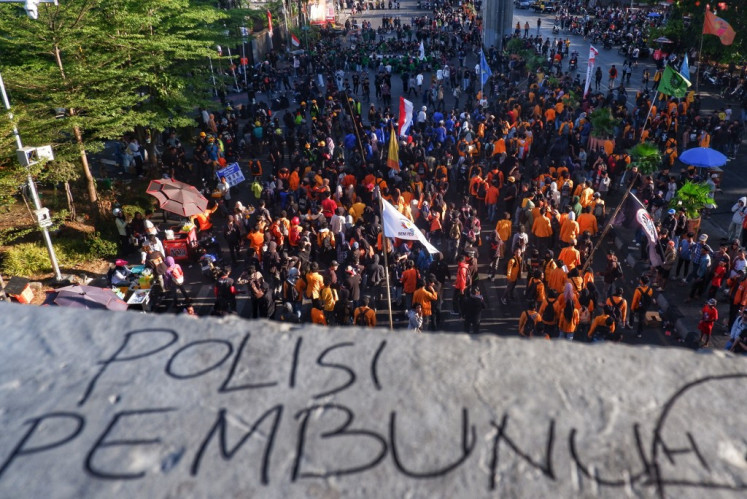Popular Reads
Top Results
Can't find what you're looking for?
View all search resultsPopular Reads
Top Results
Can't find what you're looking for?
View all search resultsHuman-induced climate change undermines rights: UN
The deputy high commissioner for human rights, Flavia Pansieri, has said human-induced climate change is not only an assault on the worldâs shared ecosystem but also weakens peopleâs rights in various fields
Change text size
Gift Premium Articles
to Anyone
T
he deputy high commissioner for human rights, Flavia Pansieri, has said human-induced climate change is not only an assault on the world's shared ecosystem but also weakens people's rights in various fields.
'It undercuts the rights to health, to food, to water and sanitation, to adequate housing and ' for the people of small island states and coastal communities ' even the right to self-determination,' she said in a panel discussion at the Human Rights Council last week.
Kiribati President Anote Tong and Tuvalu Prime Minister Enele Sopoaga were among panelists of the discussion, which examined the potentially devastating impact of climate change on human rights.
Kiribati and Tuvalu are two Pacific island states that are on the front line of the global battle against climate change. If sea levels continue to rise at the current rate, the two low-lying Pacific states could be submerged within decades. Some of their citizens have already been forced out of their homes.
'The two governments are struggling to supply their people with adequate supplies of food and clean drinking water. They are now preparing for a time when they might have to become climate change 'refugees',' said Pansieri.
In January, a minister from Kiribati told the Human Rights Council that the government was buying land offshore and providing people with the skills to 'migrate with dignity' when their islands were no longer habitable.
Pansieri says what is currently occurring is not just a matter of packing up and moving elsewhere because if the islands of Kiribati and Tuvalu disappear beneath the waves, all the trappings of a modern state - government buildings, courts, hospitals and schools - will vanish with them.
'Their peoples' right to self-determination will be undermined. Their leaders will have to find ways of reconstituting their states elsewhere, or persuade another government to provide their citizens with passports, welfare and protection,' the commissioner said.
Pansieri said the UN was calling for human rights standards to be put front and center of discussions on mitigating the negative impacts of climate change.
'Any action designed to limit climate change must have people's rights at its core. This should be taken into account when the UN Climate Change Conference convenes in Paris later this year to draw up a new global agreement,' she said. (ebf)(+++)










